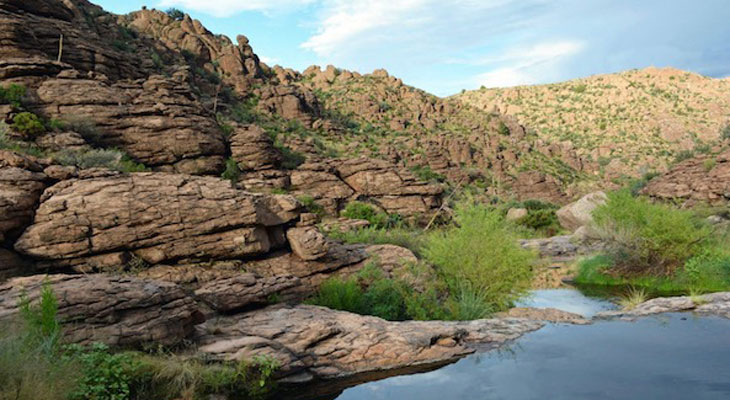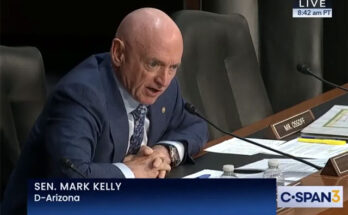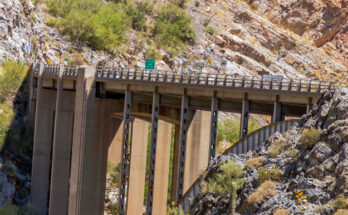A Southeast Arizona Land Exchange and Conservation Act loophole does not require Resolution’s copper to remain in the U.S.
Contributed Article/Courtesy SCAT
SAN CARLOS APACHE RESERVATION — San Carlos Apache Tribe Chairman Terry Rambler warned Congress Thursday that the People’s Republic of China (PRC) is poised to import copper from the proposed Resolution Copper Mine planned for the Tonto National Forest 70 miles east of Phoenix.
“The 2014 Southeast Arizona Land Exchange and Conservation Act failed to include a provision that unrefined copper extracted from the Resolution Copper mine must be processed into finished metal and sold in the United States,” Chairman Rambler said Thursday in a statement moments after a Congressional hearing on U.S. mineral production concluded..
“This glaring loophole puts the PRC in a position to import 40 billion pounds of unrefined copper currently worth more than $160 billion,” Chairman Rambler stated. “Congress should immediately take action to protect U.S. national security by revoking the Land Exchange Act.”
Rep. Jared Huffman, D-CA, said during the Feb. 6 hearing of the House Natural Resources Subcommittee on Energy and Mineral Resources that “Resolution Copper has not committed to keeping copper in the U.S.” and that the company is “going to mine copper that is just going to be sent abroad.”
Chairman Rambler submitted written testimony to the subcommittee detailing Resolution Copper’s connections with the PRC that could lead to the export of one of the largest copper deposits in the world to the PRC.
London-based Rio Tinto Group, the world’s second-largest mining company, controls 55% of Resolution Copper. Melbourne-based BHP Group PLC, the world’s largest mining company, controls the remaining 45% of Resolution Copper.
The Chinese state-owned Aluminum Corporation of China (Chinalco) is the single largest shareholder in Rio Tinto, controlling 14.57% of the company’s stock. Rarely does a single shareholder own more than five percent of a multi-national mining company. The PRC uses Chinalco to secure strategic minerals worldwide.
Chinalco’s website states:“(Chinalco) is a key state-owned enterprise directly supervised by the central government and a pilot state-owned capital investment company. It is shouldering the important mission of being the spearhead in the global nonferrous metals industry, the main force in supplying national strategic mineral resources and advanced high-end materials, and the leader in industry innovation and green development. (Emphasis added.)
“Chinalco’s major investment in Rio Tinto puts the PRC in prime position to seize control of the copper produced at the Resolution mine and import it directly to China,” Chairman Rambler.
Not only does the Chinese government have a major investment in Rio Tinto, but the PRC is also Rio Tinto’s and BHP’s largest single customer. Rio Tinto generates nearly 60% of its revenue through the export of minerals to the PRC. BHP generates over 62% of its revenue through the export of minerals to the PRC.
“Most of what BHP and Rio Tinto mines end up in China for processing,” Rep. Huffman said during the hearing.
Resolution Copper has claimed for years on its website and in statements to the press and Congress that copper from the Resolution mine “will supply 25% of the United States copper demand.” But Resolution Copper has never released a definitive plan to convert unrefined copper into finished metal in the United States.
The company has refused to testify before Congress, unequivocally stating where the unrefined copper will be processed. The company, however, has stated in federal filings that the unrefined copper could be exported.
Resolution Copper states in its General Plan of Operations that unrefined copper concentrates will be prepared for “shipment to domestic and/or global markets for additional processing.” (Emphasis added.) The company’s general plan also states that “there are no plans for an onsite smelter or other secondary refining plants.”
The United States only has two operating copper smelters, which are at capacity and expected to remain so for many years. The PRC, meanwhile, operates eight of the world’s 20 largest copper smelters. The PRC refined nearly 10 times more copper than the United States in 2019.
Limitations on U.S. domestic smelter capacity have resulted in a surge in exports of unrefined copper extracted from U.S. mines. The 2024 United States Geological Survey (USGS) Mineral Commodity Survey for Copper reports that the United States exported 350,000 metric tons of copper in 2023 out of total mine production of 1.1 million tons.
A 2020 University of Arizona report states that $1.6 billion worth of unrefined copper concentrates was exported from Arizona, which produces 70% of the nation’s copper. Nearly all this was sent to the Port of Guaymas in Sonora, Mexico. The University of Arizona report states that copper is one of the port’s top exports, with shipments destined for China.
Resolution Copper’s executives have held meetings with Port of Guaymas officials to discuss exporting copper concentrate. An Arizona Department of Transportation 2015 freight plan states that because of “limited smelting capacity in Arizona, the majority [of Resolution Copper’s smelting] is expected to take place outside the State and likely outside of the U.S.”
Congress passed the Southeast Arizona Land Exchange and Conservation Act as a last-minute addition to the FY15 National Defense Authorization Act. SALECA requires the transfer of 2,400 acres in Tonto National Forest, which includes sacred Oak Flat, to Resolution Copper. The transfer must occur within 60 days of publication of a Final Environmental Impact Statement on the Resolution project. The Trump Administration is expected to publish the FEIS later this year.
In his testimony, Chairman Rambler stated the destruction of Oak Flat would inflict a severe human rights violation against the Tribe. Oak Flat is included on the National Register of Historic Places as a Traditional Cultural Property.
“Congress should not partner with foreign mining entities to commit human rights violations against us, the First Americans, by destroying Oak Flat,” Chairman Rambler stated in his congressional testimony.









